Myth number 1:
Talent technology will replace the need for recruiters and sourcers

The world of recruitment has changed dramatically in just a few decades. What was once an entirely human-centric endeavour, with people wading through printed resumes, making calls on telephones and searching rolodexes for contacts has morphed into the digital world of AI, applicant tracking systems and chatbots.
This is reflected in the wider working world. The World Economic Forum famously predicted that some 85 million jobs would be lost to automation by 2025, but with an additional 97 million created through new technology.
COVID-19 has only accelerated this digital transformation, with a 2020 McKinsey & Co report suggesting that a majority of companies had accelerated digitisation of internal operations and customer interactions by three to four years in the pandemic, while the share of digital products in their portfolio grew at a rate of a rapid seven years.
So with the impact of digitisation on the world of work and the growth in talent technology, are recruiters in danger of being replaced by robots?
In short, no. Recruitment is a deeply human process, rooted in the ability to connect, communicate and empathise with others. Think about how talent professionals source and screen applicants, understand and articulate an employer’s brand and then match the two together - and then try to imagine a non-human process doing so.
A 2020 report by cloud computing company Citrix called Work 2035 surveyed and interviewed nearly 2,000 business leaders about the future of work. It found that 73% of business leaders believe that technology and artificial intelligence will make employees at least twice as productive by 2035. However, when employees were asked the same question, just 39% agreed that technology and AI would make them more efficient. This digital disconnect represents the fear many employees have about the impact of digitisation on their jobs, versus the efficiencies that business leaders hope to gain.
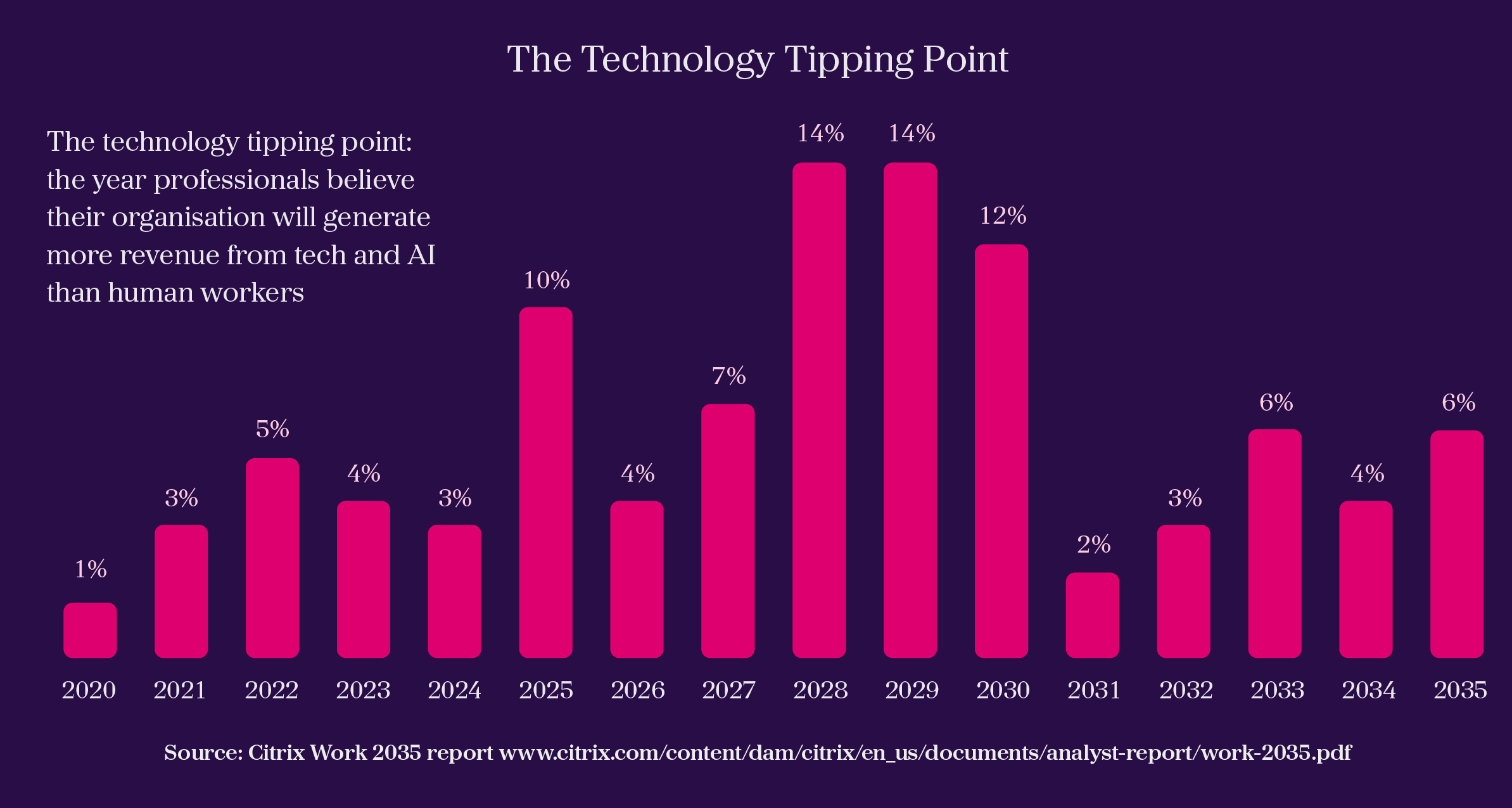
With this in mind, it’s important to focus on the role technology has in reducing the pressure on talent professionals, rather than replacing them.
Human-centric recruitment
Josh Bersin is an author, industry expert and founder of corporate learning advisory The Josh Bersin Company. He believes that while the sheer volume of talent technology is accelerating, AI-based candidate searching and recruiting is still in its infancy.
“We’ve talked for years about the possibility of automating recruitment, but it is, at its core, a people-to-people business,” he writes in his paper the definitive guide to recruiting: human centred talent acquisition.
Instead, organisations should focus on ‘human-centred talent capabilities’, says Bersin. “[These are] more adaptable to change, more profitable, more innovative, their customers are more satisfied and they have higher employee engagement and retention. In short, when you have the right people, everything else gets better,” he adds.
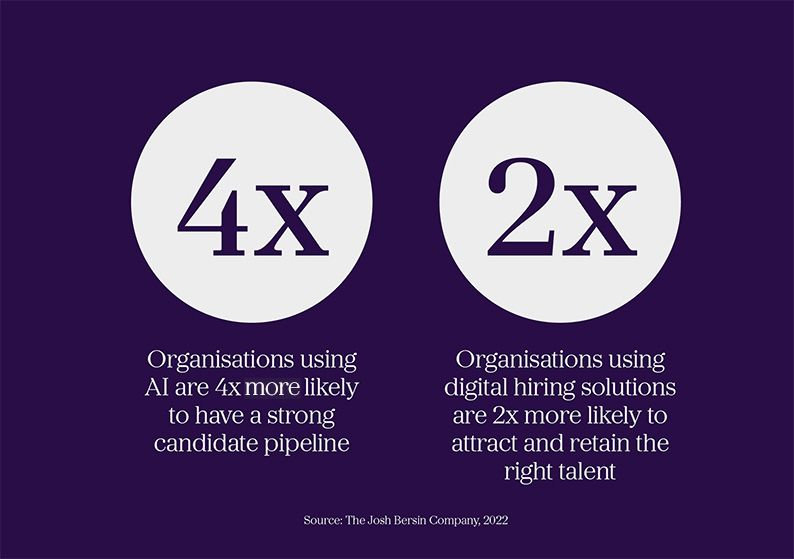
Bersin’s research shows that companies leveraging human-centric talent acquisition are twice as likely to exceed financial targets, five times more likely to have a deep pipeline of talent and 30 times more likely to engage and retain employees.
At the same time, Bersin acknowledges that technology can strengthen talent pipelines - but the issue is that most companies don’t know how to effectively utilise digital recruiting solutions.
“Our research shows that virtual hiring tools, automation, talent intelligence platforms, and even AI and chatbots do drive key metrics like your ability to attract and hire great candidates or maintain a quality talent pipeline,” says Bersin.
According to Bersin’s report, organisations that use AI are four times more likely to boast a strong candidate pipeline, while those that use digital hiring solutions are twice as likely to attract and recruit the right talent.
So with that in mind, how can talent professionals work with technology to build the future of recruitment?
Combining people and process
The first step is to think of talent technology as a complement and partner to the human skills talent professionals bring. By using talent technology to bring in efficiencies and remove administrative tasks, recruiters and talent acquisition professionals can focus on more strategic goals.
This also creates efficiencies on the candidate side. In a candidate-driven market, it’s vital that employers offer a slick, speedy recruitment experience. Technology like chatbots, automatic interview scheduling and AI screening can speed up the hiring process and move potential candidates more quickly to the interview and offer stage.
Building people and process on top of technology
Digital transformation is affecting all aspects of business, so it’s vital that a business’ talent strategy works with the broader strategic goals of the company. This might mean harnessing technology used elsewhere in the business for talent acquisition, or using talent technology to find the right profile of candidates to drive transformation.
Either way, technology is going to underpin the future of work, so it’s vital to examine how organisations can build people and process on top of technology.
Building relationships with vendors to understand technology
The impact of technology on recruitment is in its infancy. Currently, most talent technology is aimed at improving workflow efficiencies. However, as the sector develops, new technologies will inevitably change how candidates apply for roles and how recruiters manage them. It’s also likely we will see a consolidation of technologies, with larger providers emerging offering wider services.
A long-term skillset organisations and talent professionals will need is the ability to build relationships with technology vendors in order to better understand their offerings, how these will integrate with an organisation and how they can maximise value.
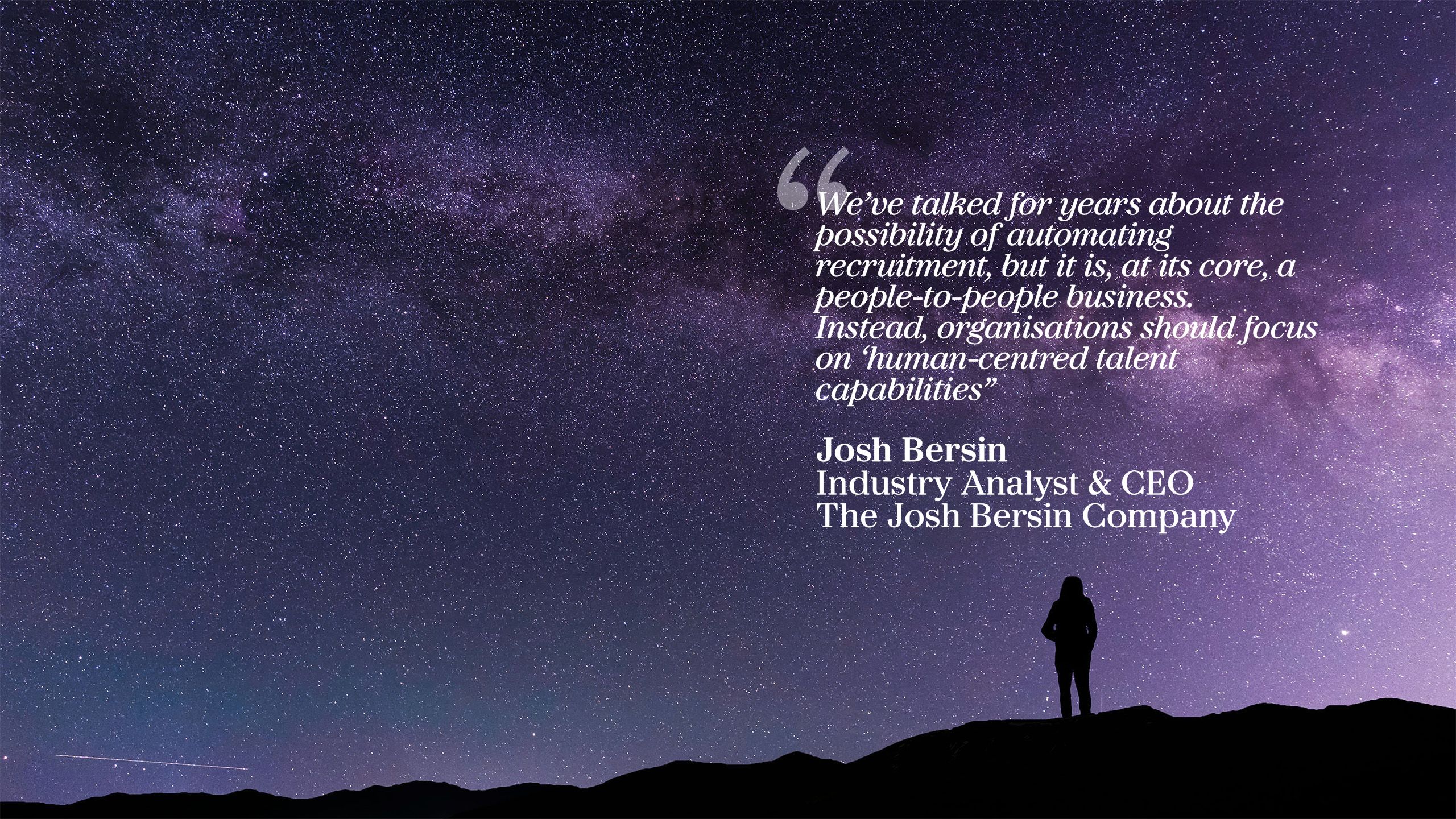
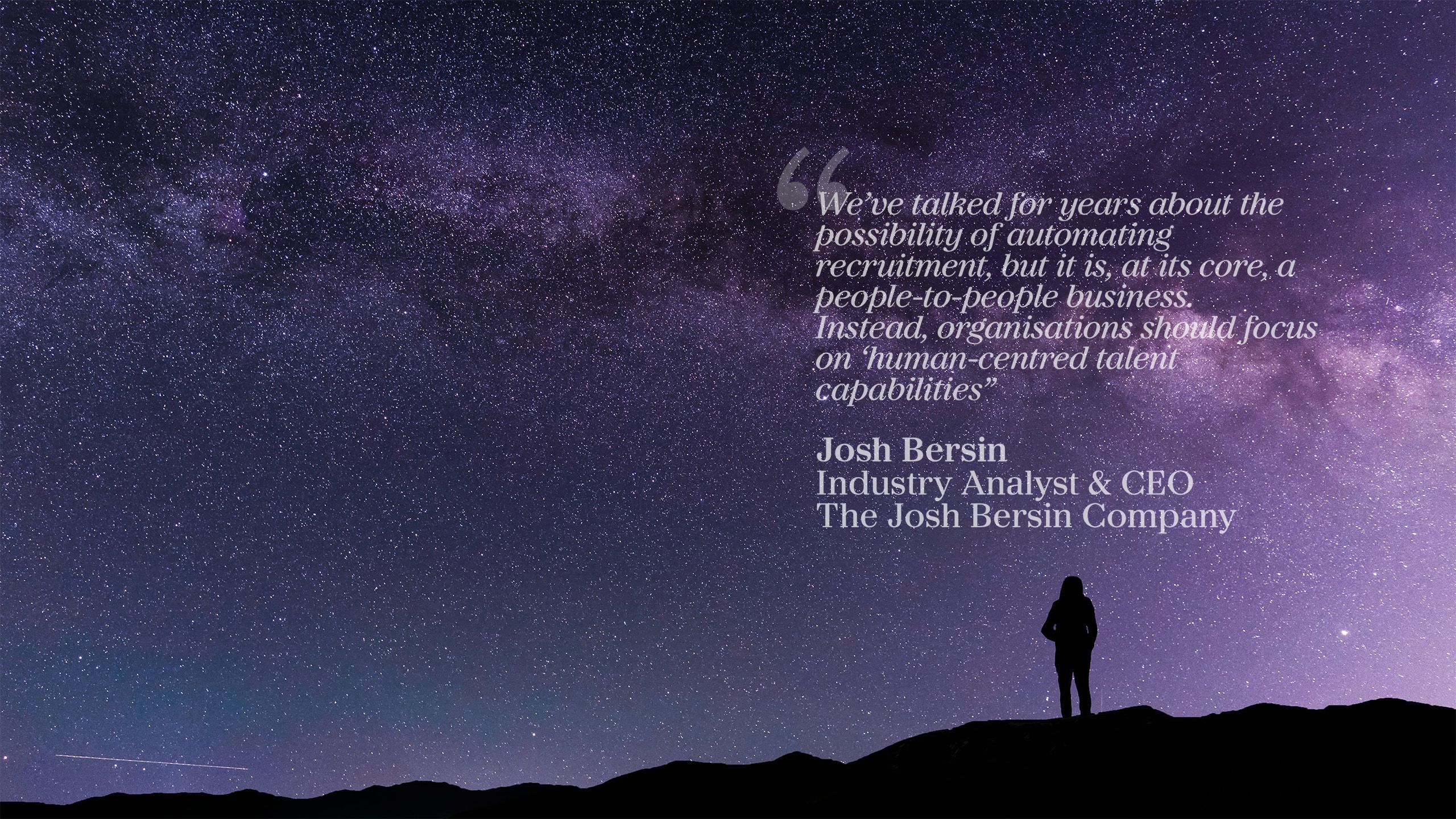
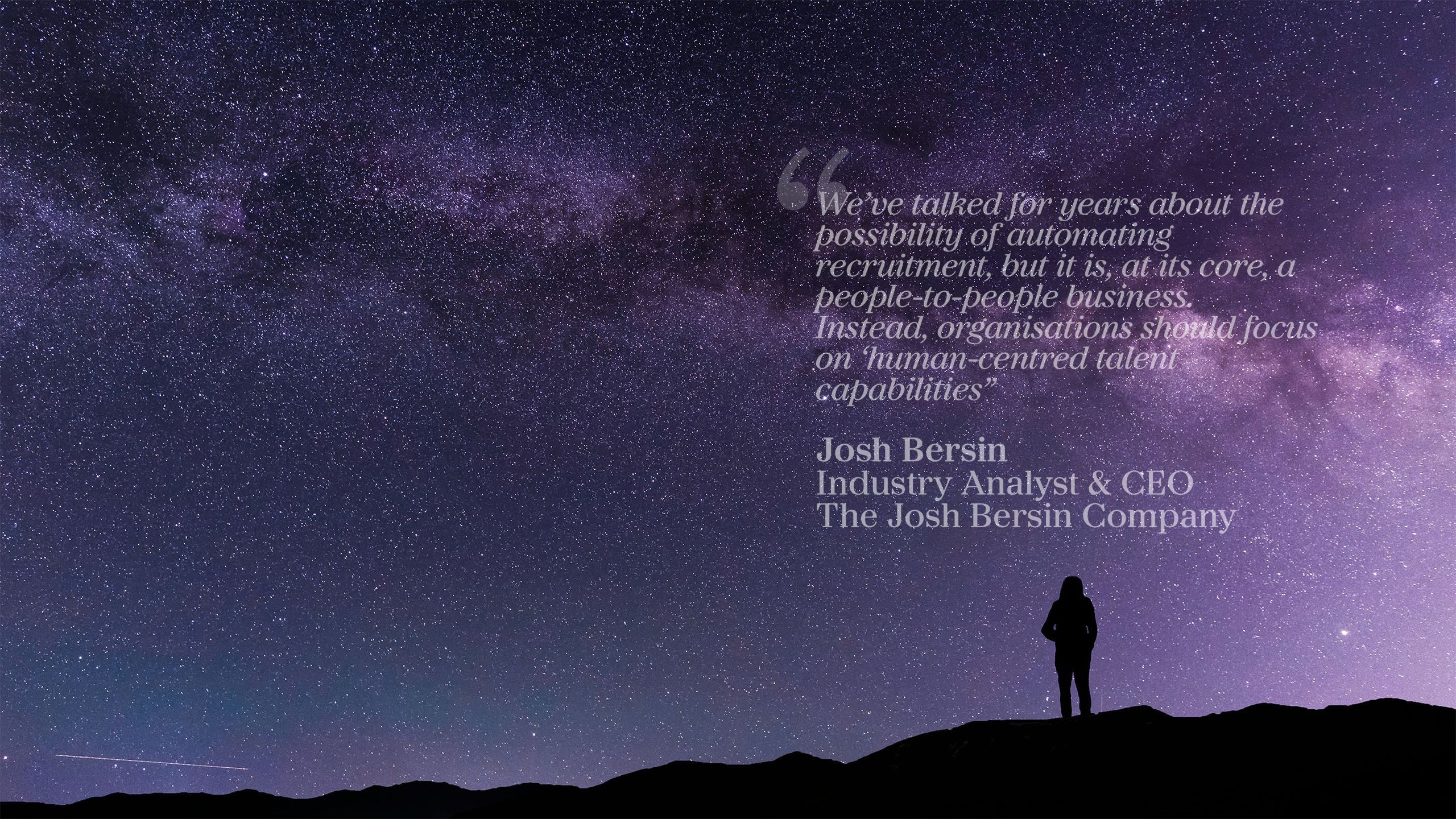
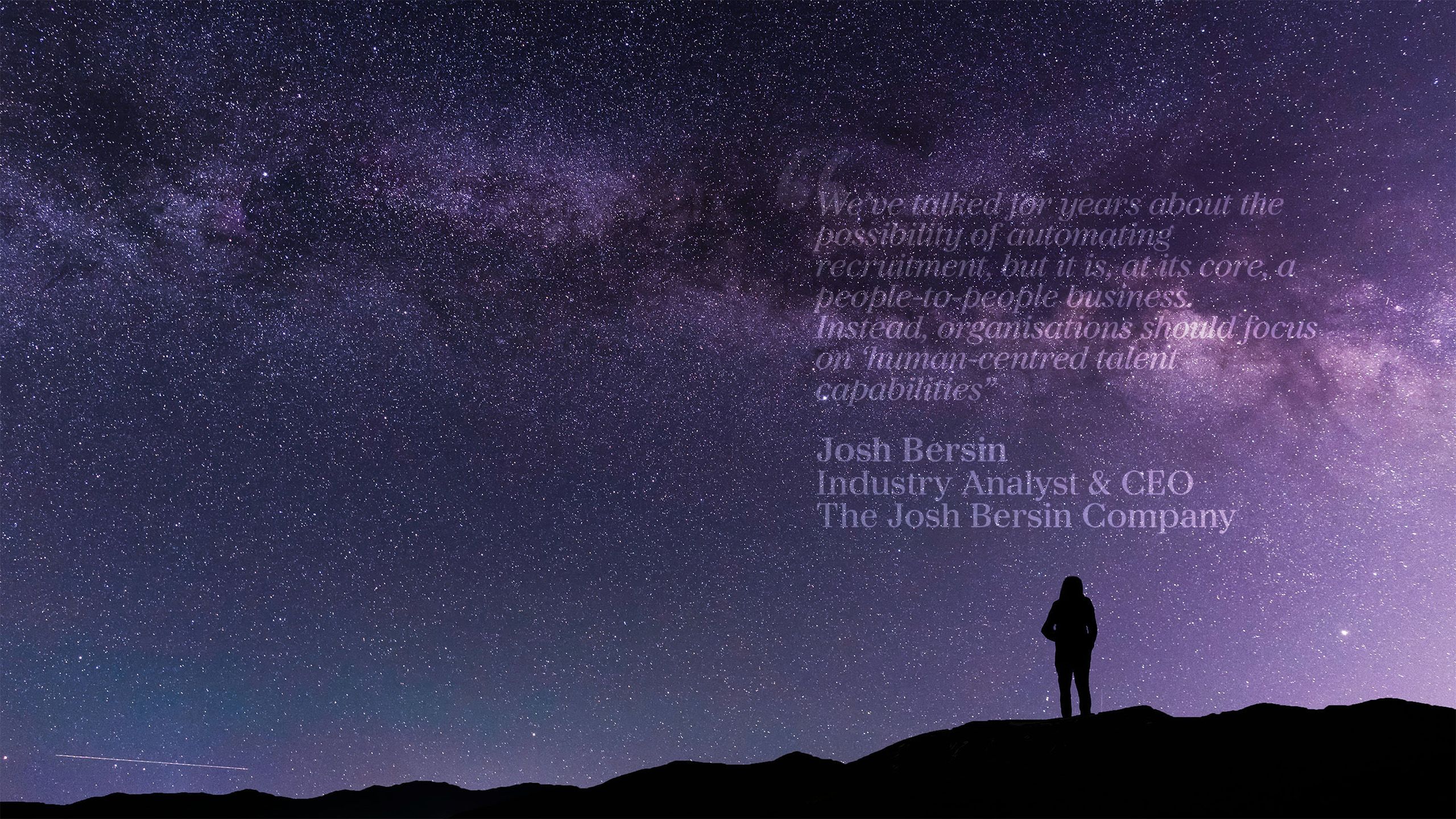
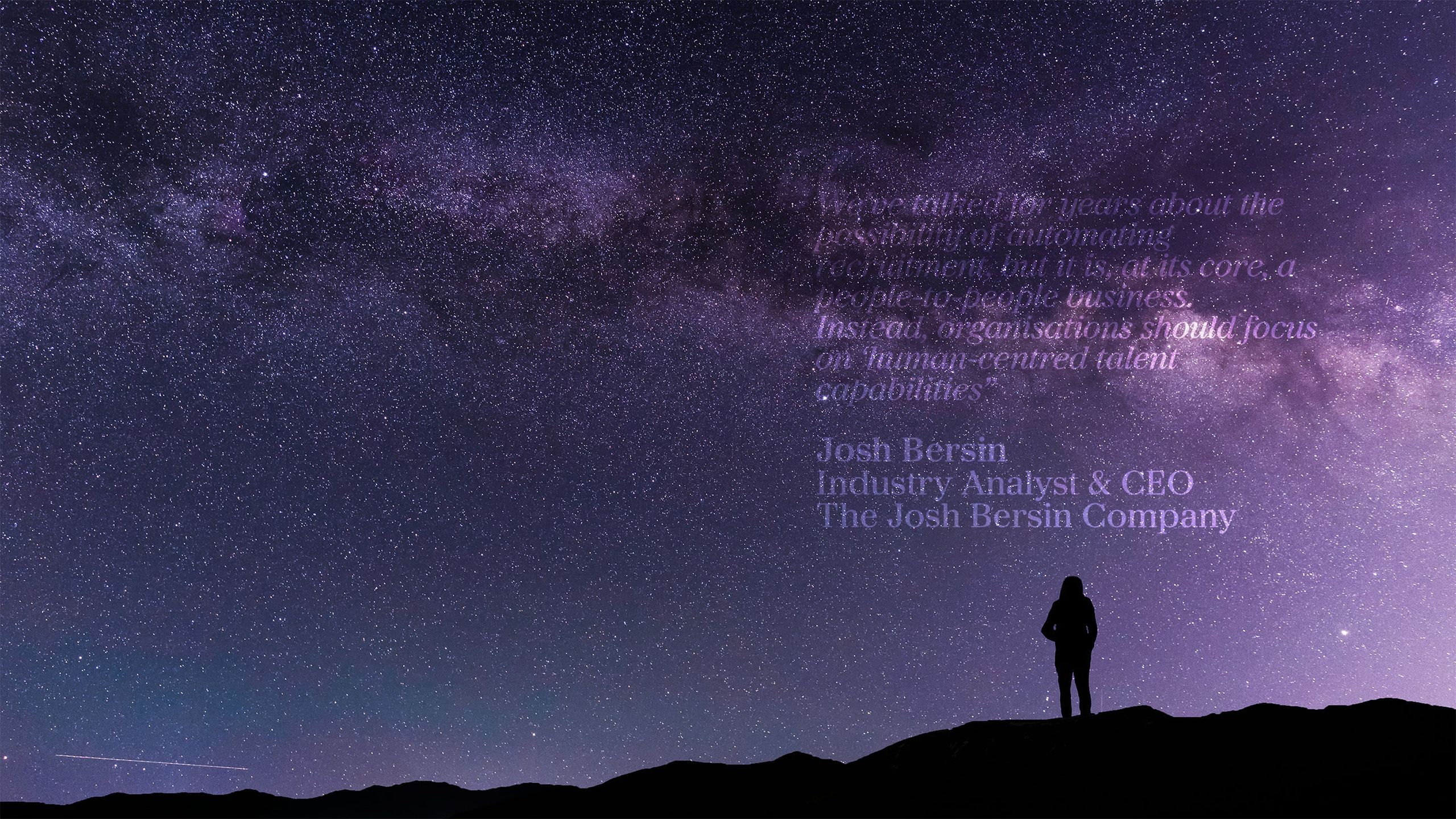



The world of recruitment has changed dramatically in just a few decades. What was once an entirely human-centric endeavour, with people wading through printed resumes, making calls on telephones and searching rolodexes for contacts has morphed into the digital world of AI, applicant tracking systems and chatbots.
This is reflected in the wider working world. The World Economic Forum famously predicted that some 85 million jobs would be lost to automation by 2025, but with an additional 97 million created through new technology.
COVID-19 has only accelerated this digital transformation, with a 2020 McKinsey & Co report suggesting that a majority of companies had accelerated digitisation of internal operations and customer interactions by three to four years in the pandemic, while the share of digital products in their portfolio grew at a rate of a rapid seven years.
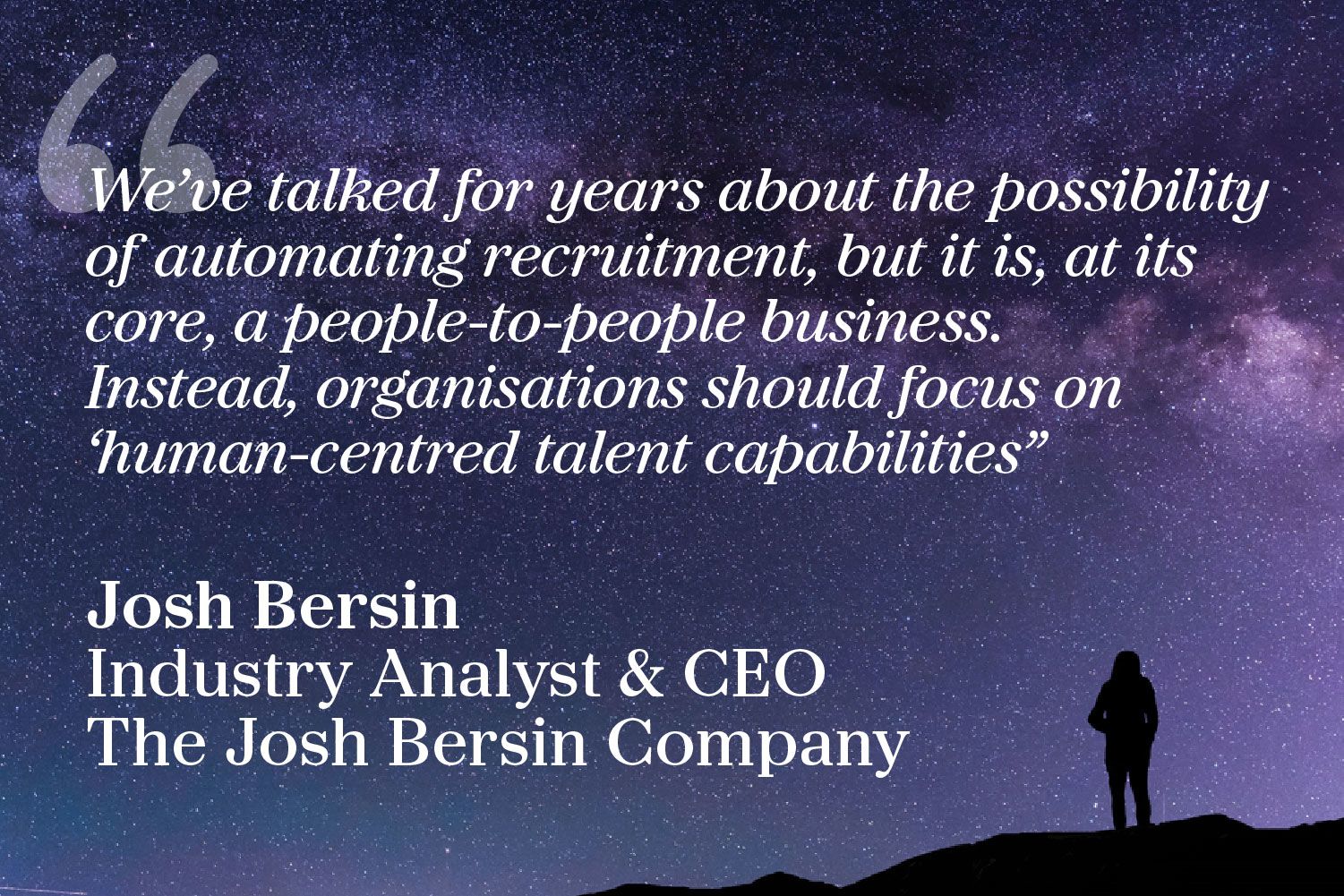
So with the impact of digitisation on the world of work and the growth in talent technology, are recruiters in danger of being replaced by robots?
In short, no. Recruitment is a deeply human process, rooted in the ability to connect, communicate and empathise with others. Think about how talent professionals source and screen applicants, understand and articulate an employer’s brand and then match the two together - and then try to imagine a non-human process doing so.
A 2020 report by cloud computing company Citrix called Work 2035 surveyed and interviewed nearly 2,000 business leaders about the future of work. It found that 73% of business leaders believe that technology and artificial intelligence will make employees at least twice as productive by 2035. However, when employees were asked the same question, just 39% agreed that technology and AI would make them more efficient. This digital disconnect represents the fear many employees have about the impact of digitisation on their jobs, versus the efficiencies that business leaders hope to gain.

With this in mind, it’s important to focus on the role technology has in reducing the pressure on talent professionals, rather than replacing them.
Human-centric recruitment
Josh Bersin is an author, industry expert and founder of corporate learning advisory The Josh Bersin Company. He believes that while the sheer volume of talent technology is accelerating, AI-based candidate searching and recruiting is still in its infancy.
“We’ve talked for years about the possibility of automating recruitment, but it is, at its core, a people-to-people business,” he writes in his paper the definitive guide to recruiting: human centred talent acquisition.
Instead, organisations should focus on ‘human-centred talent capabilities’, says Bersin. “[These are] more adaptable to change, more profitable, more innovative, their customers are more satisfied and they have higher employee engagement and retention. In short, when you have the right people, everything else gets better,” he adds.

Bersin’s research shows that companies leveraging human-centric talent acquisition are twice as likely to exceed financial targets, five times more likely to have a deep pipeline of talent and 30 times more likely to engage and retain employees.
At the same time, Bersin acknowledges that technology can strengthen talent pipelines - but the issue is that most companies don’t know how to effectively utilise digital recruiting solutions.
“Our research shows that virtual hiring tools, automation, talent intelligence platforms, and even AI and chatbots do drive key metrics like your ability to attract and hire great candidates or maintain a quality talent pipeline,” says Bersin.
According to Bersin’s report, organisations that use AI are four times more likely to boast a strong candidate pipeline, while those that use digital hiring solutions are twice as likely to attract and recruit the right talent.
So with that in mind, how can talent professionals work with technology to build the future of recruitment?
Combining people and process
The first step is to think of talent technology as a complement and partner to the human skills talent professionals bring. By using talent technology to bring in efficiencies and remove administrative tasks, recruiters and talent acquisition professionals can focus on more strategic goals.
This also creates efficiencies on the candidate side. In a candidate-driven market, it’s vital that employers offer a slick, speedy recruitment experience. Technology like chatbots, automatic interview scheduling and AI screening can speed up the hiring process and move potential candidates more quickly to the interview and offer stage.
Building people and process on top of technology
Digital transformation is affecting all aspects of business, so it’s vital that a business’ talent strategy works with the broader strategic goals of the company. This might mean harnessing technology used elsewhere in the business for talent acquisition, or using talent technology to find the right profile of candidates to drive transformation.
Either way, technology is going to underpin the future of work, so it’s vital to examine how organisations can build people and process on top of technology.
Building relationships with vendors to understand technology
The impact of technology on recruitment is in its infancy. Currently, most talent technology is aimed at improving workflow efficiencies. However, as the sector develops, new technologies will inevitably change how candidates apply for roles and how recruiters manage them. It’s also likely we will see a consolidation of technologies, with larger providers emerging offering wider services.
A long-term skillset organisations and talent professionals will need is the ability to build relationships with technology vendors in order to better understand their offerings, how these will integrate with an organisation and how they can maximise value.
Expert commentary
Jonathan Kestenbaum
Managing Director
Technology Strategy & Partners, AMS

The future of technology in talent acquisition
There’s a number of ways to look at the impact of technology on people in talent acquisition. The easiest way is to look at how it’s impacted a similar industry, like sales. Here, the evolution of technology has seen sales development representatives, account executives and heads of sales increasingly use tools like Salesforce or Outreach. These people didn’t disappear when technology came in - they just became more efficient, optimised and data-driven.
The flipside of this is candidate experience. Applying for a new job is potentially a life-changing decision. If you get through to an interview, you’re looking for cultural fit, you’re looking to understand the vibe of an organisation.
You can’t get this without speaking to someone who works there and connecting with the human element of an organisation. This means that while technology can be an enabler of recruitment, the people element is and will remain crucial.
We’re only at the beginning of the impact of technology on recruitment processes, with workflow technology the main focus. There are many more layers and dynamics that will come into play as technology evolves. This means that technical savvy will be a unique skill for recruiters moving forward. The ability to understand technology and optimise recruitment processes around it will be a valuable skill going forward.
In the future, recruiters will actually use less technology than they do now. You’ll use five technology platforms, not 20. As the space evolves, we’ll see significant consolidation of technologies into larger platforms.
On the people side, technology is going to allow us to optimise for specific metrics that make a business impact, such as time to hire or diversity. Recruiters will build deeper, more meaningful relationships with candidates - and hold onto these relationships for a longer period of time. What’s going to differentiate organisations of the future is the relationships they hold with candidates. Technology will allow us to scalably stay in touch with candidates in a meaningful way, matching their skills and requirements to jobs.

Expert commentary
Jeanette Leeds
Managing Director
Hourly, AMS

How technology makes high volume hiring more efficient
AMS Hourly is set to focus on high volume retail organisations. It’s focused on engaging and optimising the hiring of hourly workers, through a quick and efficient process.
We do this through three key areas - conversational AI, automation and real-time data and analytics. Combining those three pieces can be very powerful in making the recruitment process more efficient and freeing up recruiters to do more strategic work.
One example of how such technology can improve recruitment is speed. The time from when a candidate engages with an Hourly chatbot to scheduling an interview is less than three minutes. This can be super powerful when you need to hire the same profile of candidate repeatedly in a short period of time. The chatbot asks a series of simple questions, the candidate answers and the system automates a response for you. It is rapid candidate sifting and scheduling.
Those in the market not using such technology are missing out on candidates, as the job market today is all about speed and candidate experience. Jobseekers today are used to a frictionless, consumer-like experience. They use Uber Eats to order food, or Amazon to buy products. Everything is so quick and easy and you don’t have to engage with another person. If your job application process is long and tedious, you’ll lose candidates to your competitors.
This is particularly true in the current job market, where demand for candidates is huge. There are way more jobs than candidates, so speed and efficiency is key.
There is a lot of fear about AI and automation in the job market, with people worried about technology replacing people. This will absolutely not happen. What will happen is that jobs will evolve. Technology will take over some tasks - particularly admin - but people will remain the decision-makers. Technology will guide and suggest, but people will make the ultimate decisions. It will make the job of a recruiter more strategic, more efficient and in the end, more fun.


